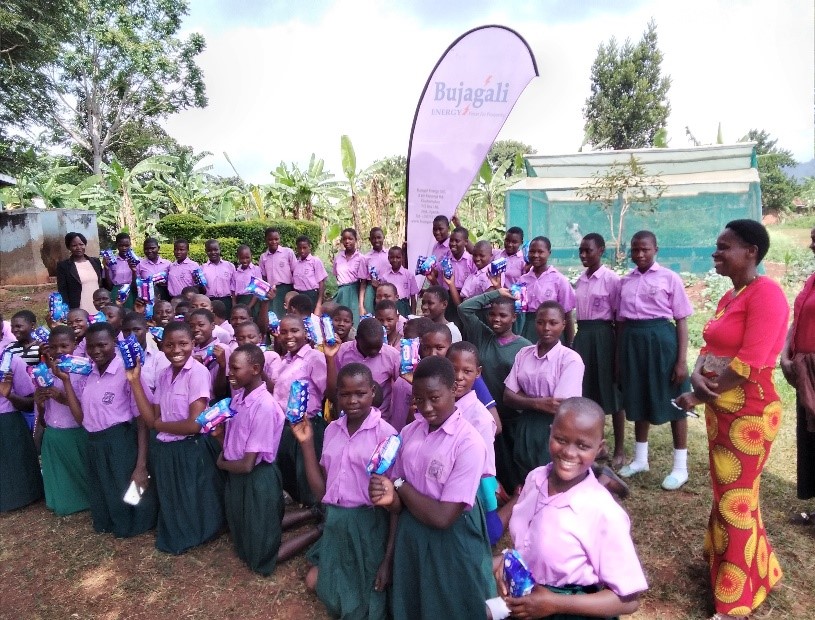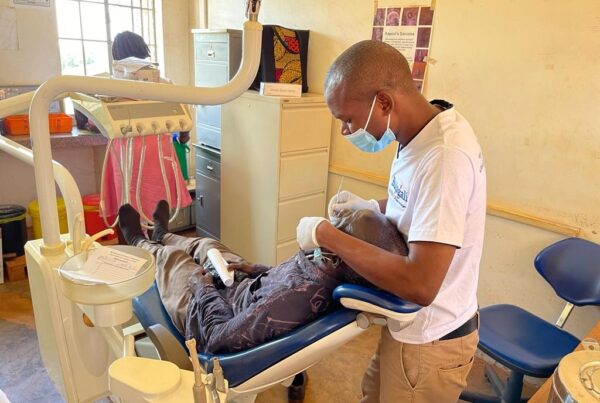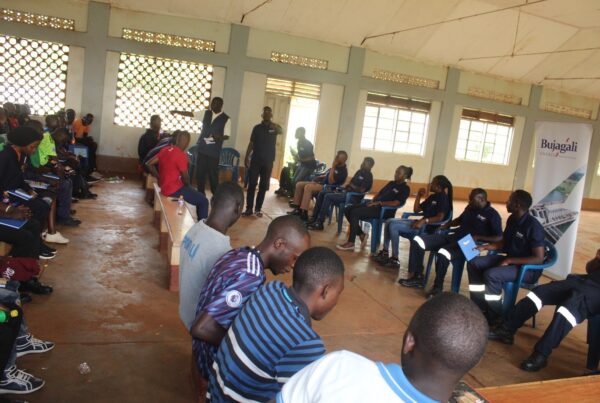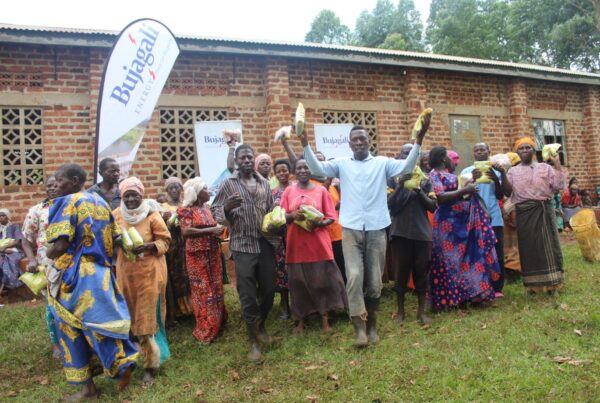A study by United Nations Human Rights highlights that about 500 million girls and women don’t have access to resources for proper menstrual hygiene worldwide. Uganda is one of the countries in sub-Saharan Africa where menstrual Health management is still a challenge for adolescent girls and women. Uganda international Health management water and sanitation Centre established that half of the adolescent girls miss on average 1-3 days of school per month due to menstruation. This translates into a loss of 8-24 school days per year which implies that 11% of school days are lost.

Pupils of Budondo Primary School showcasing Pads donated by BEL
‘‘Bujagali Energy Limited (BEL) in partnership with AFRIpads (U) Ltd. started a grassroots initiative in schools within the area in which they operate to empower young girls on menstrual hygiene and to eliminate the stigma and taboos around menstruation,’’ says Jenifer Achanga the Environment and Social officer BEL.
Jenifer added that this programme was carried out by their sustainability team in 7 schools and was attended by both adolescent girls and female teachers. A total of 600 re-usable sanitary pads were given to the students in the schools.
Most of the teachers during the sensitization forums highlighted that the irregular attendance of adolescent girls during the menstruation period has highly been reported in primary schools by various teachers.
They further added that many young girls in primary schools receive minimal guidance on menstrual hygiene management and limited access to menstrual materials.
After the sensitization forum, the students were very enthusiastic about the session and promised to maintain school attendance during menstruation.
‘‘At the end of the day, it is important to help eliminate this stigma, especially amongst the young ones within the communities. BEL identified a need and that’s why it has included menstrual hygiene in their wellness programme to empower students in the communities within the area in which they operate, ’says Jenifer Achanga.



